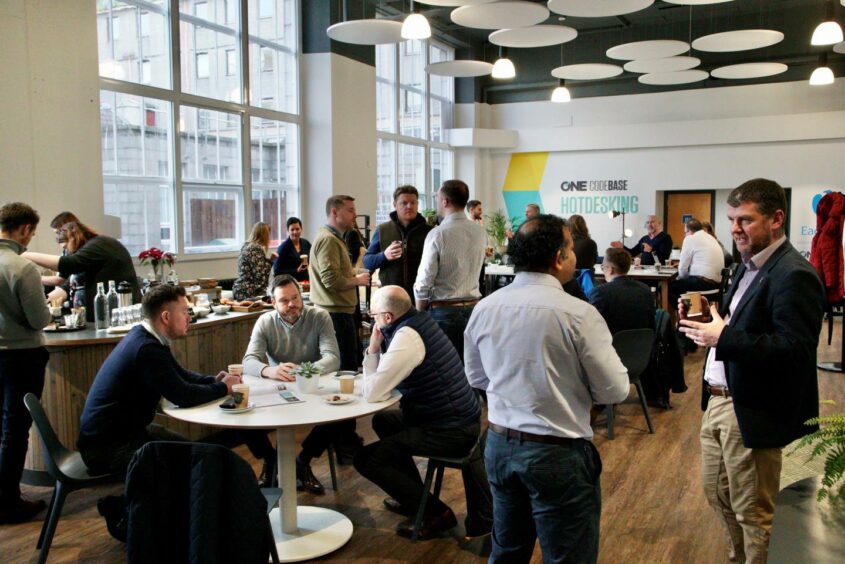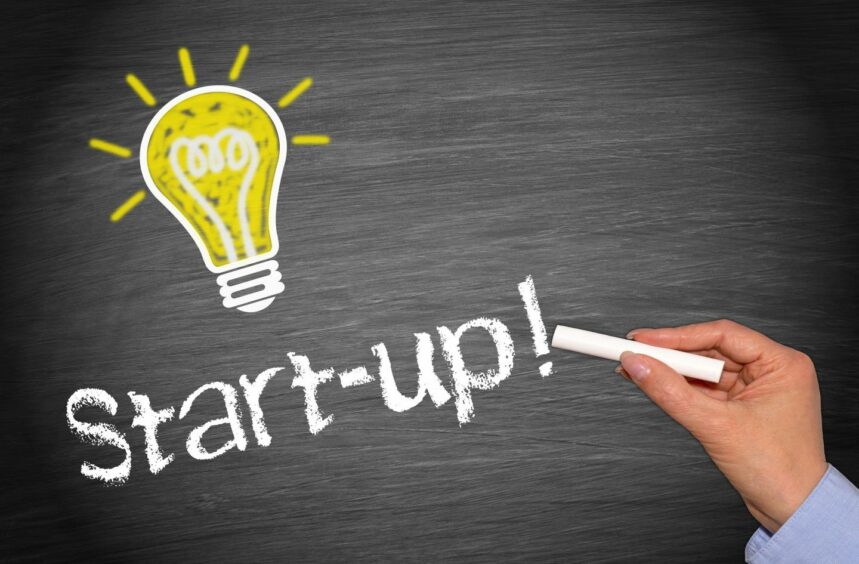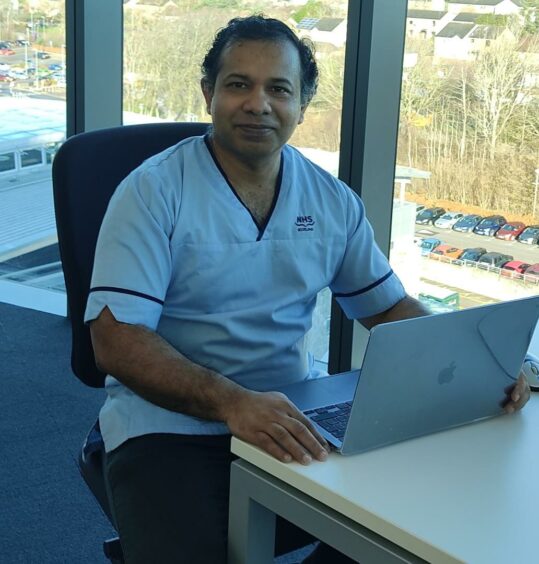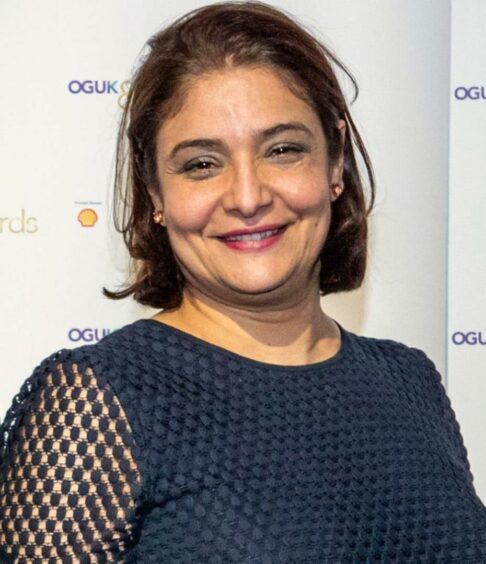Will the north-east be the birthplace of Scotland’s next technology unicorn?
That’s the hope for more than 50 aspiring technology founders taking part in two new educational programmes for start-ups.
Opportunity North East (One) is supporting and accelerating technology business creation with access to foundation start-up and scale-up education, together with expert advice and mentoring.
Start-ups and existing businesses with a new idea are being encouraged to harness the latest technology advances, including blockchain, artificial intelligence and the “internet of things” to create products and solutions for key sectors including energy, food and drink, and health and wellbeing.
One’s two new programmes were launched earlier this year in partnership with technology incubator CodeBase.
They are backed by the Scottish Government’s North East Economic Recovery and Skills Fund.
Tech Startup Fundamentals (TSF) introduces aspiring founders at the pre start-up stage to the key concepts in technology product development to help them move their idea forward.
Tech Startup Next Steps (TSNS) is for people who have made a start on their product idea and want to learn how to get to the next stage of progress and growth, and secure investment.
One senior digital development manager Jen Scott said: “The level of interest and uptake in our early stage tech founder programmes demonstrates the incredible talent pool we have in the region.
“Early stage founders with great ideas are looking for support and encouragement to take their ideas to the next stage.
“We have a diverse cohort, including students, researchers and graduates from both Robert Gordon University and the University of Aberdeen, with new product idea, as well as people working in industry who have recognised issues that could be solved with a tech product.
“We also have some established business owners who see an opportunity to diversify and scale their business through the creation of a tech product.”
Tech Startup Fundamentals
Launched in January, TSF introduces key concepts of digital product development to equip would-be business founders with useful information they need to move forward.
Interactive sessions help participants to understand what it takes to get from the idea phase to starting a business, and from product development through market validation, playbooks and peer review.
They also get valuable help to develop early stage ideas, frame, test and validate potential products, and identify potential customers and markets.
Tech Startup Next Steps
TSNS helps people who already have a technology business or those who have completed the first programme to go from the minimum viable product stage to, hopefully, reaching “market fit”.
Areas covered in this course include what to expect when you’re a start-up founder, how to approach building your team and getting further investment, and what to do when circumstances change and you’re forced to change course.
CodeBase product innovation director Jim Newbery said: “What makes these programmes different is that we don’t focus on programming or technical skills, and we don’t teach general business skills.
“We focus on what’s unique about technology start-ups – and that’s all about iteration, rapid learning, and understanding customers and markets to get to a point where you have a minimal viable product.”
He added: “Participants have come from a wide range of backgrounds, including people from established industries like oil and gas, students with existing technology skills and others from life sciences and hospitality.
“Key concepts we cover include understanding customers and markets, how you might conceive an idea for your start-up that serves those customers and markets, and also come up with ideas that can potentially create a company that can grow very quickly.
“The speakers and experts all have start-up operator experience so participants are learning directly from people who have been there, done it before and made all the mistakes.”
‘Elusive’ goal
Mr Newbery continued: “The hope is by sharing this experience participants can avoid some of those mistakes and fast track to the next stage of success.
“Tech Start Up Next Steps, aims to help start-ups get to the elusive ‘product market fit’, which is when customers are really demanding the product and almost pulling it from your hands, and that is, ultimately, where every start-up wants to be.”
Two potential unicorns
For Reji Jacob, Tech Startup Fundamentals came at the perfect time for his new technology start-up.
Intelligent Frame, launched earlier this month, captures a range of health-related information and delivers someone’s wellness status in real time via an app.
A prototype is being developed by Mr Jacob as part of his MSc in data science at Robert Gordon University, in Aberdeen.
From care sector to company founder
The idea for his product comes from six years working in the care sector and identifying a market for artificial intelligence (AI) to address the growing gap between resource constraints and a growing elderly population.
Mr Jacob said: “One out of three people is now expected to live to the age of 100 and eight out of 10 will have dementia.
“We simply don’t have the human resource to care for the aging population so technology has to kick in at some point.”
He added: “My expertise is on the technical side, but creating a product and taking it to market is where I need help.
“Tech Startup Fudamentals has helped me understand the key concepts.
“Before this I knew nothing about the business model canvas and how it can help with how you present the product, or work out the revenue potential and who is the key customer.
“All these pieces are now coming together in tandem with product development.”
Fennex looking to scale up
Established in 2016, Aberdeen-based Fennex specialises in the development of AI-driven software to accelerate digital transformation in the offshore energy sector.
Co-founder Nassima Menasria Brown said she was now looking to scale the award-winning business.
She added: “With an existing breakthrough technology innovation related to safety observation automation within oil and gas, the opportunity and challenge for us at Fennex is how to scale that not only across the energy sector but also other high-hazard industries.
“Having been in business for six years, I didn’t initially think Tech Startup was the programme for us.
“But speaking to the team at One (Opportunity North East) it became clear that to successfully shift to a scalable tech product we needed to think and behave like a start-up again.”
Ms Menasria Brown continued: “It’s not about coding or developing the technology – it’s about understanding how this technology will fix the problems of the target customer.
“Entrepreneurs often come up with the solution without fully understanding the problem, or if there is even a need for that solution.
“What we are learning is how to identify the problem and how to articulate the value of the technology solution to the market.
“Supporting entrepreneurs through that journey and cultural mindset is very different from developing the technology.”






